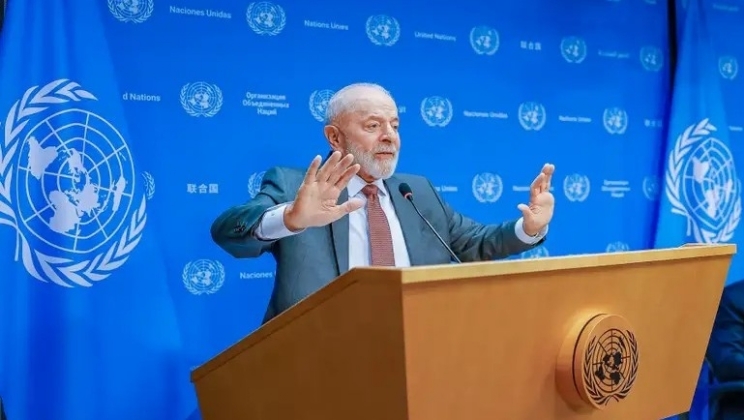
President Lula (PT) expressed concern about the impact of betting on the finances of the poorer population and the high rate of indebtedness. According to the Minister of Social Development, Wellington Dias, the leader argues that the Bolsa Família Program is “for food and basic needs” and, therefore, has already demanded from his government the urgent issuance of measures to reverse this scenario.
During his trip to New York, President Lula expressed outrage to aides upon encountering news of the impact of bets on the accounts of the neediest population and high rates of indebtedness. Lula demanded from his government the urgent issuance of measures to reverse this panorama.
The Minister of Social Development, Wellington Dias, said that Lula requested "urgent measures" on the subject. The department is responsible for the program.
"The president argues that Bolsa Família is for food and basic needs of each beneficiary family. He requested urgent measures", said Dias. The Bolsa Família card, which can be used for purchases on debit and other transactions, such as withdrawing benefits, should be banned for bets.
"The regulation of bets, coordinated by the Ministry of Finance and Civil House, should contain a rule with zero limit for the social benefits card for games and control based on the CPF of the player".
Monitoring by CPF is foreseen in the regulation of the sector in Brazil. "You will have CPF by CPF of who is betting, all confidential, but he will open this account. We will be able to have an alert system in relation to people who are showing a certain psychological dependence on gambling", detailed the Minister of Finance, Fernando Haddad, this Wednesday (25).
The head of the Executive became aware of the situation through a technical note made by the Central Bank, which indicated expenses of R$ 3 billion in bets by Bolsa Família beneficiaries only via Pix and in the month of August.
Lula expressed to interlocutors concern about the impact on people in vulnerable situations, including among adolescents and young people.
Almost a third (30%) of Brazilians aged 16 to 24 years said they had already gambled, according to a Datafolha survey published in January this year. The percentage among young people is double the average of 15% for the entire country.
Bets have been legalized in the country since 2018, after a law approved in the government of Michel Temer (MDB). The government of Jair Bolsonaro (PL) should have regulated the market, but did not do so in the four years of mandate - during this period, bets had huge growth, without rules and supervision.
Source: Folha









